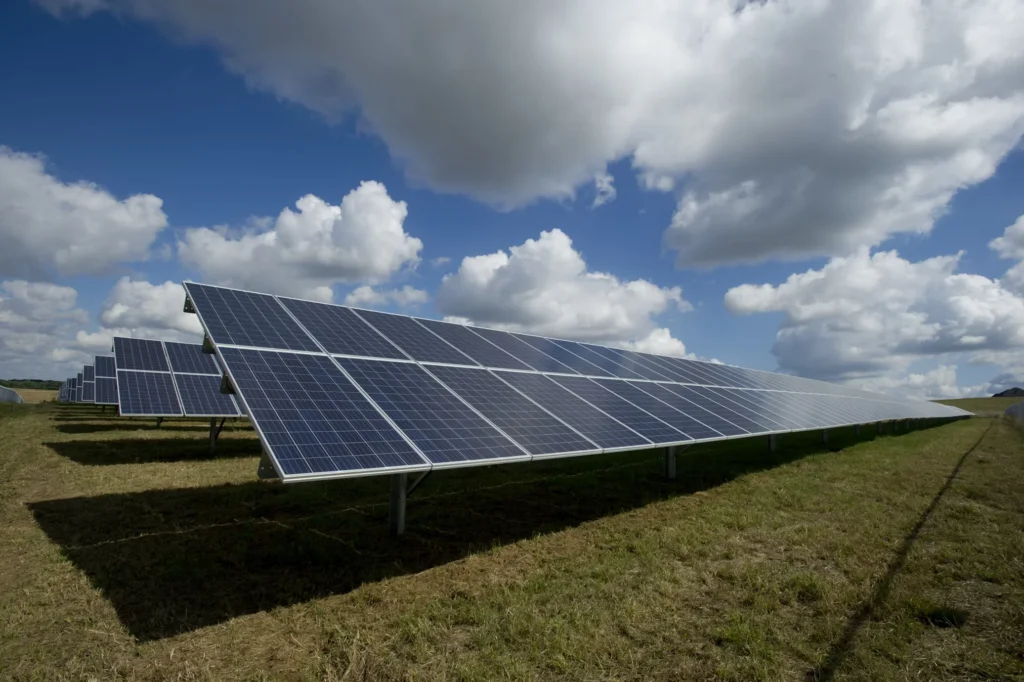Under the leadership of Chief Minister Ali Amin Khan Gandapur, Khyber Pakhtunkhwa (KP) is making remarkable strides in the energy, solar, and water sectors (KP Clean Energy Projects).
Aligned with the vision of former Prime Minister Imran Khan, the province is committed to transforming 60% of Pakistan’s energy into clean energy by 2030.
This ambitious goal (KP Clean Energy Projects) is part of a broader effort to combat climate change, promote sustainable development, and ensure a greener future for generations to come.
Over the past year, KP has achieved significant milestones in renewable energy, solar power adoption, and water management.

Let’s take a closer look at these transformative initiatives.
Solar Energy: Powering Homes and Communities:
KP is leading the charge in solar energy adoption, making it accessible and affordable for its residents. Key achievements include:
- 15 Billion PKR Solar Initiative: Over 130,000 homes are being solarized, with full or 50% subsidies provided. This includes 15,000 homes in merged districts, equipped with 19 to 23 megawatt solar systems.
- Solarizing Mosques: A total of 628 mosques across 100 merged districts have been solarized at a cost of 52.6 crore PKR, ensuring uninterrupted power for worship and community activities.
- Mian Mandi Solar Mini-Grid: A 175-kilowatt solar mini-grid has been activated in Mian Mandi, Mohmand District, providing reliable energy to local markets and businesses.
- Public Buildings Solarization: Government buildings, including jails, tube wells, health centers, and universities, are being powered by solar energy. Projects worth 8.2 billion PKR have been completed, generating 39.3 megawatts of clean energy.
These efforts not only reduce reliance on fossil fuels but also lower electricity costs for households and businesses, fostering economic growth.
Hydropower: Harnessing the Power of Water
KP is blessed with abundant water resources, and the government is leveraging this potential to generate clean energy:
- Revived Hydropower Projects: Three previously stalled hydropower projects—Jabori (10.2 MW), Karora (11 MW), and Koto (40 MW)—have been restarted, with local engineers taking the lead to address security concerns.
- Small Hydropower Plants: Detailed designs for 48 micro-hydropower plants (MMHPs) have been completed, with a combined capacity of 13.7 megawatts. These projects will benefit 35,000 people in remote areas.
By investing in hydropower, KP is ensuring a sustainable and reliable energy supply while creating opportunities for local communities.
Transmission and Distribution: Strengthening Infrastructure
To support its growing energy needs, KP is upgrading its transmission and distribution networks:
- 120-Kilometer Transmission Line: The province is constructing its first-ever provincial-level transmission line along the Swat Corridor. The first phase of 40 kilometers has already been awarded, paving the way for economic growth and industrialization.
- Provincial Distribution Company: A 7-crore PKR investment has been made to establish KP’s first provincial-level distribution company and regulator, ensuring efficient energy distribution.
These infrastructure upgrades are critical for delivering electricity to underserved areas and supporting industrial development.
Oil and Gas: Maximizing Local Benefits
KP is also focusing on optimizing its oil and gas resources to benefit local communities:
- Royalty Payments Cleared: Over 10.18 billion PKR in pending royalties for Nashpa, Chanda, Mela, and Tol Blocks have been cleared, ensuring fair compensation for resource-rich areas.
- Increased District Shares: The share of oil and gas-producing districts has been raised from 10% to 15%, directly benefiting local populations.
- Savings from Petroleum Agreements: The KP government saved 11 billion PKR by finalizing the petroleum agreement for the Mirani Block, which had been pending since 2021.
These measures ensure that the wealth generated from natural resources is reinvested in local development.
Water Management: Ensuring Access and Sustainability
Access to clean water and efficient irrigation systems is a top priority for the KP government. Key projects include:
- Gravity-Fed Water Supply Schemes: Projects worth 18.5 billion PKR in Manshera and 4.46 billion PKR in Havilian are providing clean water to over 293,000 people.
- Indus River Water Supply: A 2.2 billion PKR project is delivering drinking water to 77,000 residents in Rehmanabad, Shikardara, Kohat, and other areas.
- Irrigation Projects: Over 33 billion PKR has been invested in irrigation projects, including the Chaudhwan Zam Dam in Dera Ismail Khan, which will irrigate 19,500 acres of land and prevent flooding in the Sulaiman Mountains.
- Small Dams: Eight small dams are set to be completed by March 2025, irrigating 23,447 acres of new land and boosting agricultural productivity.
These initiatives are transforming arid lands into fertile fields, ensuring food security, and improving livelihoods.
Public Health Engineering: Clean Water for All
KP is committed to providing clean drinking water to its citizens:
- Completed Projects: A total of 717 water supply projects have been completed, benefiting 357,035 people across the province.
- Barani Dam Expansion: The Barani Dam’s capacity has been increased, irrigating 120,000 acres of land and supporting local agriculture.
Water Regulatory Authority: Promoting Efficient Use
To ensure the sustainable use of water resources, KP has established a Water Regulatory Authority with a 2-billion PKR investment. This body will oversee the equitable distribution and efficient management of water, addressing the challenges of scarcity and overuse.
Conclusion: A Greener, Brighter Future
Khyber Pakhtunkhwa is setting an example for the rest of Pakistan by prioritizing clean energy, sustainable water management, and equitable resource distribution.
Under the leadership of Chief Minister Ali Amin Khan Gandapur, the province is not only addressing current challenges but also laying the foundation for a prosperous and sustainable future.
By investing in solar energy, hydropower, and water infrastructure, KP is ensuring that its citizens have access to reliable energy and clean water (KP Clean Energy Projects) while protecting the environment for future generations.
These efforts reflect a clear commitment to Imran Khan’s vision of a green Pakistan, demonstrating that with determination and innovation, a sustainable future is within reach.

